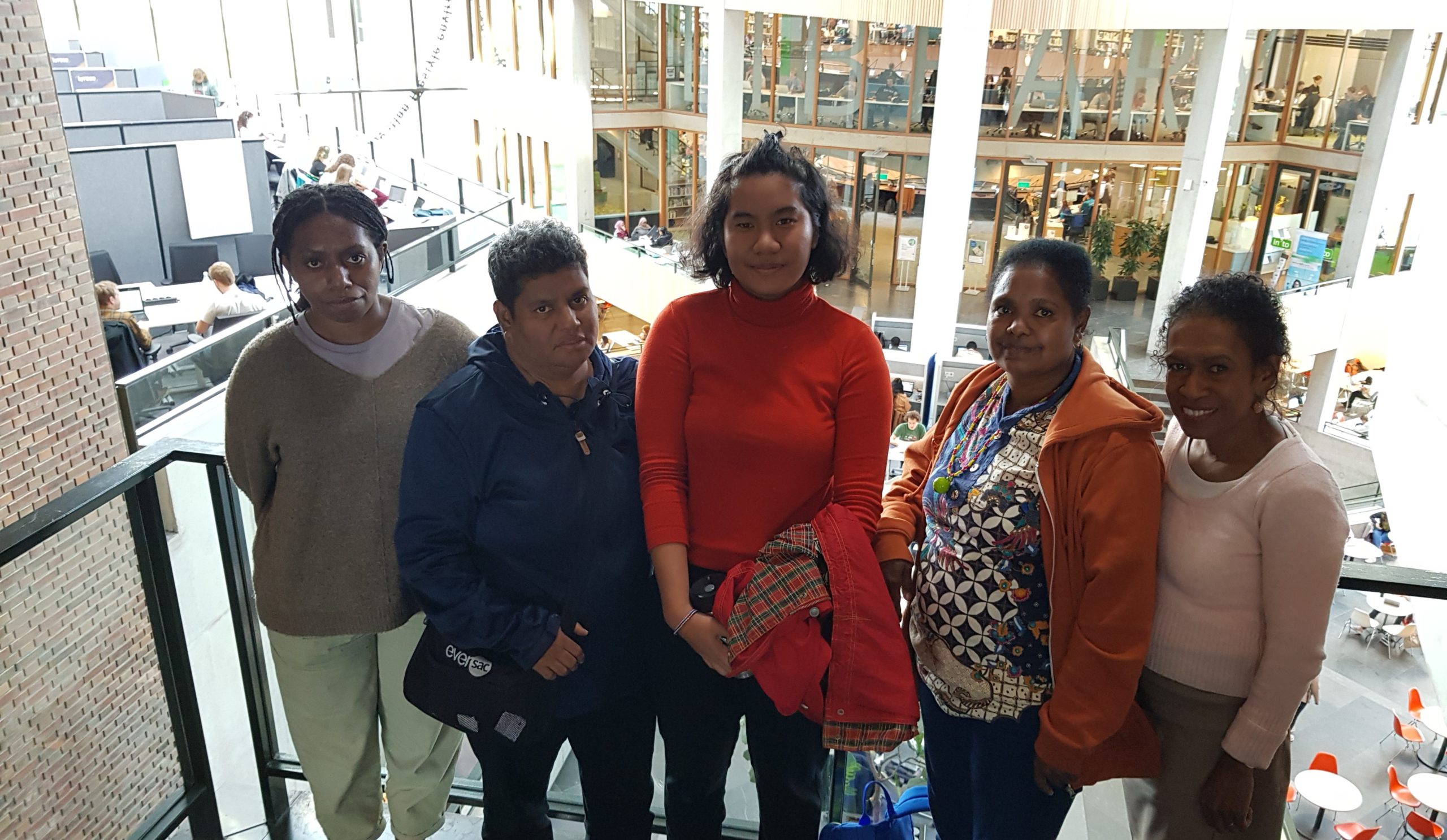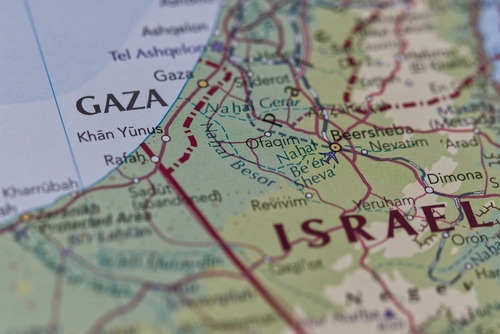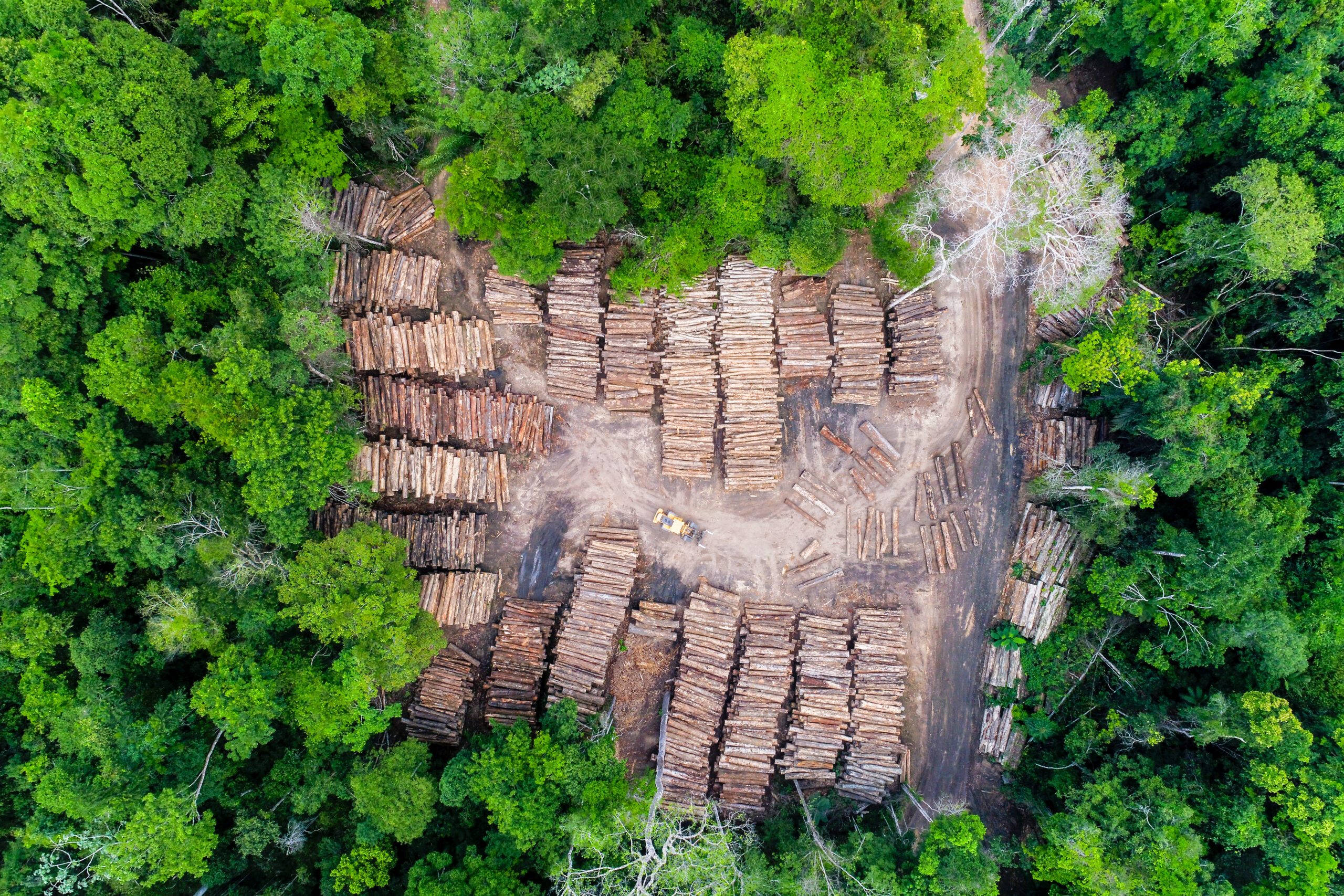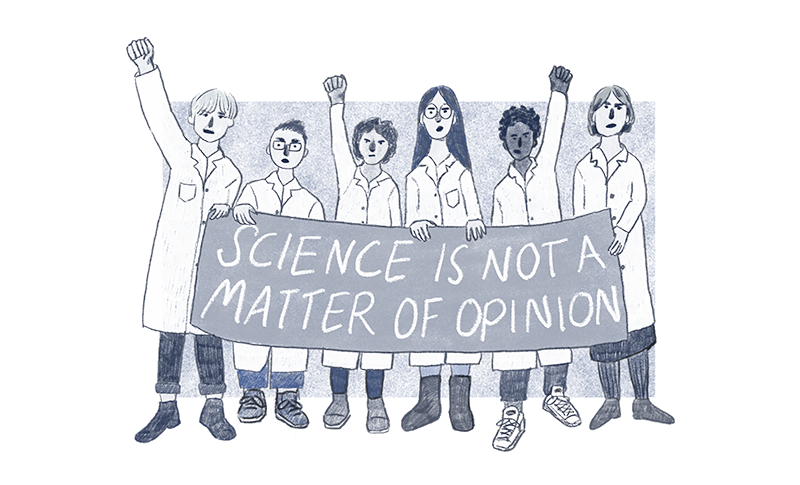Four fiery Papuan women visited the campus today as part of their campaign tour of the Netherlands. It was their last stop before returning home tomorrow. Their visit to Wageningen attracted wide interest: Room 435 in Forum was packed, with a lot of international students in particular.
The women’s story is harrowing. The large palm-oil companies are trampling on the rights of the indigenous people in their urge for expansion. That is clear not just from the women’s accounts (told in Bahasa Indonesian and translated into English) but also from the report ‘All the Birds are Gone’. This study gives a detailed description of the practices.
Corruption
It is an account of corruption, deception, exclusion, racism and intimidation, based on interviews with 100 Papuan women. A million hectares of rainforest have already been felled, and there are plans to clear far more. Plans that ‘make some members of the indigenous population rich, but most members poor,’ as Magda Kafiar sums up.
The forest and the land are our beating heart
Rosita Tecuari, Namblong clan, Grime Nawa Valley, West Papua
Deforestation and land grabbing affect the womenfolk most of all. The tree felling means they have to travel much further to get food and medicines. And if any compensation is paid at all for the land that has been taken, the money goes to the men. In the dramatic words of Rosita Tecuari, ‘The forest and the land are our beating heart. Take them away and we disappear too.’
Pension fund
There is a reason for the Papuan women’s decision to visit WUR. They were invited by Bas Verschuuren (Forest and Nature Conservation Policy), who along with others is trying to persuade the ABP pension fund to become more sustainable. ABP invests in the companies Posco and Salim Group, which are responsible for deforestation in West Papua among other places.
When the time came for questions, most of the questions came from Indonesian students. One student wanted to know how safe it is to speak out about these practices, which the Indonesian government turns a blind eye to. Kafiar says she is fully aware of the dangers. ‘If you speak out, people soon see you as a separatist. Papuans suffer a lot of racism. But we don’t have a choice.’

 Four of the five Papuan women in Forum. From left to right: Natalia Yewen, Magda Kafiar, Sornica Ester Lily and Veronika Manimbu. Far right: Vien Sawor of Solidarity with Papua. Photo Roelof Kleis.
Four of the five Papuan women in Forum. From left to right: Natalia Yewen, Magda Kafiar, Sornica Ester Lily and Veronika Manimbu. Far right: Vien Sawor of Solidarity with Papua. Photo Roelof Kleis. 

